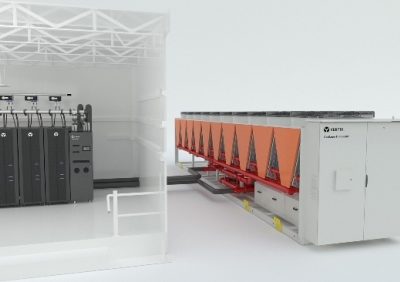The Association of Telecommunications Companies of Nigeria (ATCON) and the Association of Telecommunications, Information Technology, Cable Satellite Network Operators and Allied Services Employers of Nigeria (ATICEN) have expressed strong support for the Nigerian Communications Commission’s (NCC) decision to approve a 50% tariff adjustment for telecommunications operators.
RELATED: MTN Nigeria shares soar as government approves 50% telecom tariff hike amid economic challenges
“This decision reflects the Commission’s recognition of the mounting operational challenges faced by operators and the need to sustain their ability to deliver quality telecommunications services to Nigerians,” said Tony Izuagbe Emoekpere, President of ATCON.
Why the Tariff Adjustment Matters
Economic Realities Threatening the Sector
For over a decade, telecom tariffs in Nigeria have remained stagnant despite:
- Escalating Costs: Inflation, rising energy prices, and the depreciation of the naira have significantly increased operational expenses.
- High Investment Demands: Operators are investing heavily in infrastructure to meet growing consumer demand.
These factors have placed immense financial pressure on the sector, threatening the sustainability of Nigeria’s telecom industry—a critical driver of the nation’s digital economy.
Industry Perspectives
- ATCON’s Position:
Emoekpere commended the NCC’s collaborative approach to addressing these challenges, emphasizing that while operators had sought a 100% tariff increase, the approved 50% adjustment is a step in the right direction.- “This adjustment will allow operators to continue investing in infrastructure, expand coverage, and improve service quality for Nigerians,” he said.
- ATCON also called for the swift release of the official document, as mandated by the Nigerian Communications Act 2003, to provide clarity on the implementation and guidelines for stakeholders.
- ATICEN’s Appeal to Stakeholders
Comrade Adede John Williams, President of ATICEN, urged consumers and stakeholders in the telecom ecosystem to understand the necessity of the adjustment.“Aside from oil and gas, the telecommunications sector is one of the few industries driving significant investment growth in Nigeria. Without this adjustment, the sector risks collapse, which would have dire consequences for the economy,” Williams said.
Operators’ Commitment
Emoekpere assured Nigerians that telecom operators are committed to reinvesting the additional revenue generated from the adjustment into:
- Enhancing network quality.
- Expanding digital service access.
- Delivering an improved customer experience.
“These efforts will ensure Nigerians enjoy better connectivity, wider coverage, and innovative solutions that meet their evolving needs,” he stated.
The NCC’s Balanced Approach
The Nigerian Communications Commission emphasized its commitment to balancing operator sustainability with consumer protection in its decision.
During a stakeholder meeting in Abuja, Dr. Bosun Tijani, Minister of Communications, Innovation, and Digital Economy, explained that while operators initially requested a 100% tariff hike, the government opted for a 50% increase to ease the financial burden on consumers.
“We aim to ensure telecom operators remain sustainable while mitigating the burden on subscribers,” Dr. Tijani said.
Key Drivers Behind the Tariff Adjustment
- Rising Operational Costs:
- Energy Costs: Soaring diesel prices have sharply increased the cost of powering telecom base stations.
- Currency Depreciation: Importing telecom equipment has become significantly more expensive due to the naira’s instability.
- Inflation: Nigeria’s high inflation rate has exacerbated the financial strain on operators.
- Stagnant Tariffs:
- Telecom tariffs had remained unchanged for over 11 years, preventing operators from absorbing increasing costs.
- Economic Impact:
- Telecom infrastructure underpins essential services in commerce, education, healthcare, and security. Without tariff adjustments, these services could face disruptions, negatively impacting Nigeria’s economy.
The Road Ahead for Nigeria’s Telecom Industry
The tariff adjustment represents a pivotal moment for Nigeria’s telecommunications sector, which has been a cornerstone of the country’s digital transformation. Both ATCON and ATICEN emphasized the importance of ongoing collaboration between operators, regulators, and stakeholders to sustain the industry’s growth and ensure affordable, reliable connectivity for Nigerians.































